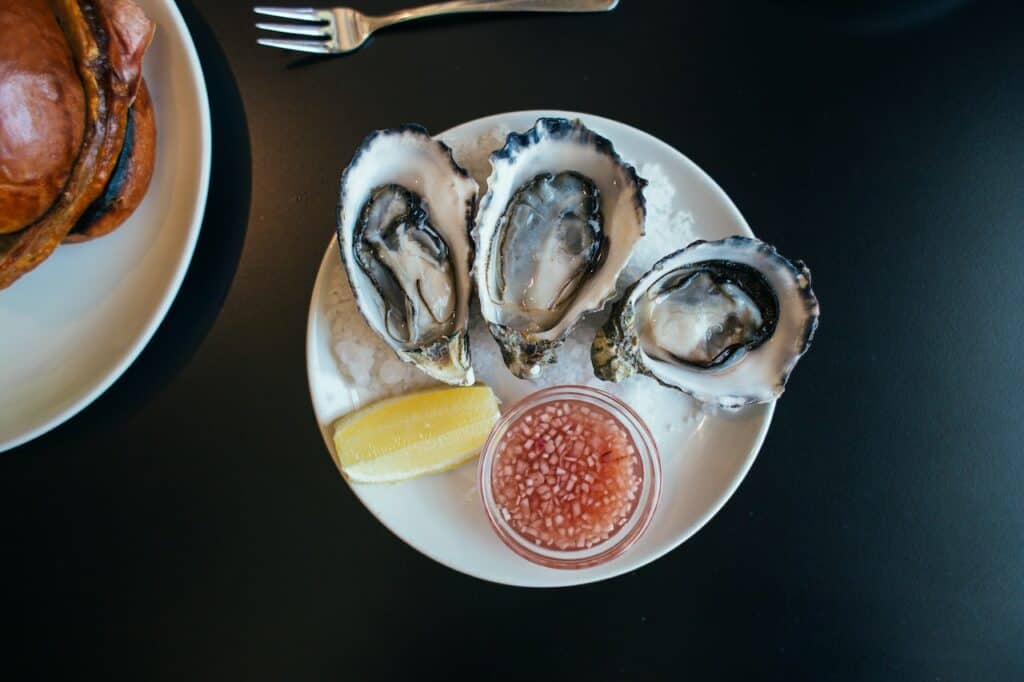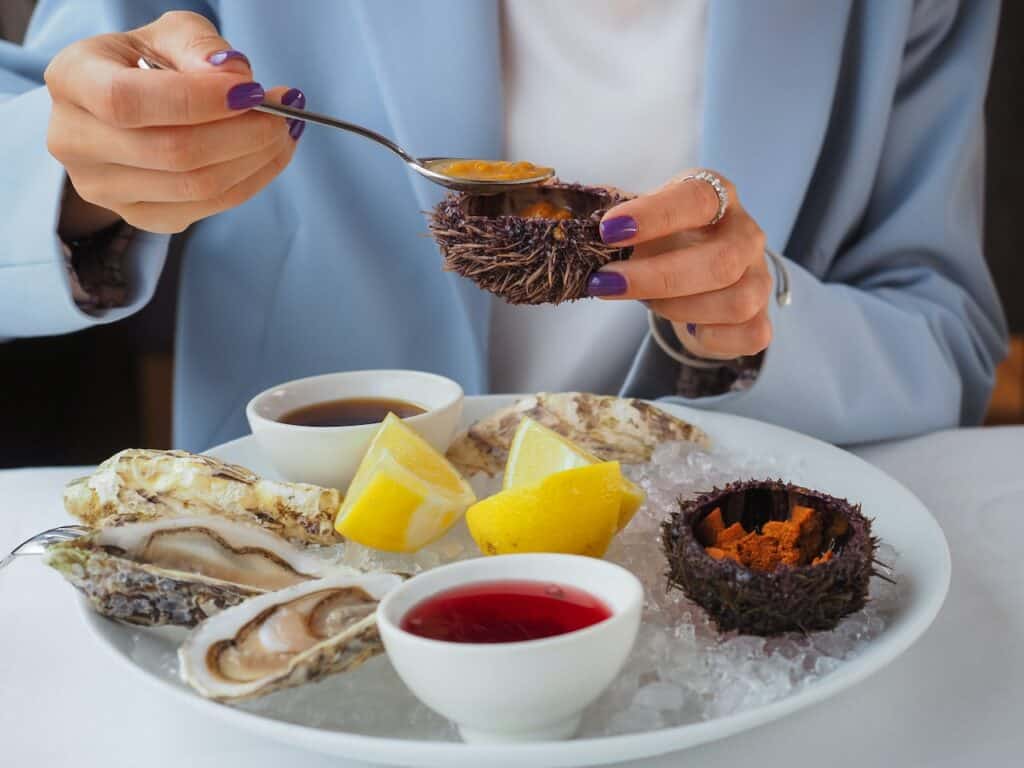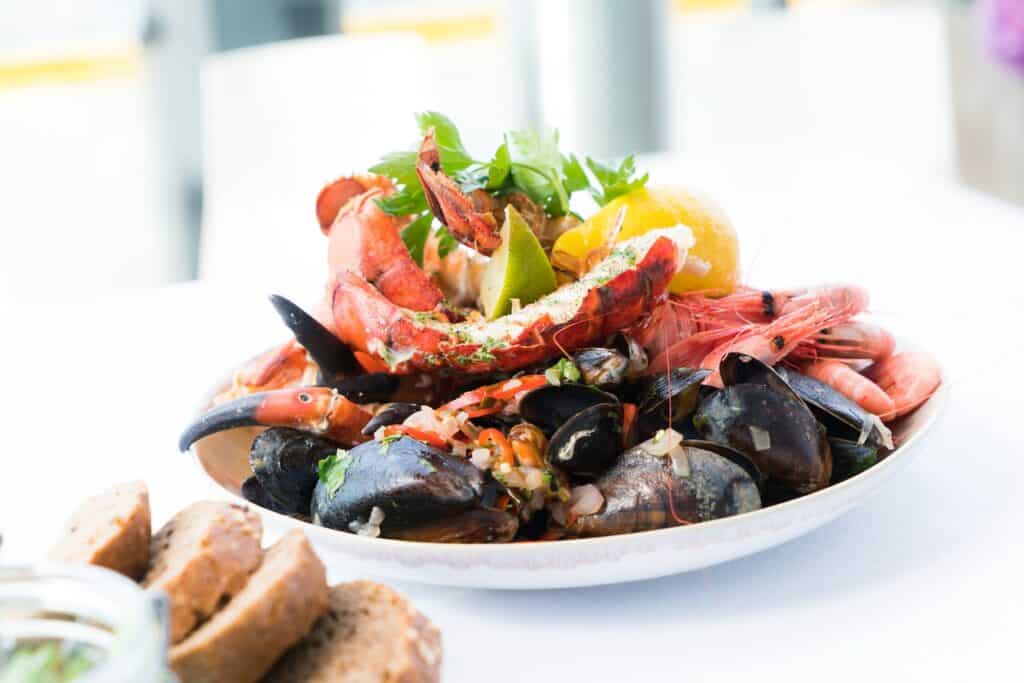Breastfeeding is a crucial time for both the mother and the newborn baby. It is important to ensure that the mother is getting all the necessary nutrients to maintain her health and provide her baby with all the necessary nutrients for growth and development. One question that often arises is can you eat oysters while breastfeeding.
Oysters are a popular seafood delicacy that is rich in nutrients such as protein, zinc, and omega-3 fatty acids. These nutrients can be beneficial for both the mother and the baby. However, there are also concerns about the safety of eating oysters, especially when it comes to mercury contamination and potential allergies.
Key Takeaways
- Oysters are a rich source of nutrients that can be beneficial for both the mother and the baby during breastfeeding.
- However, there are also safety concerns such as mercury contamination and potential allergies that need to be taken into consideration.
- It is important to follow guidelines from health organizations and consider alternatives to oysters if there are any concerns.
Understanding the Nutritional Value of Oysters

Oysters are a type of shellfish that are enjoyed by many people around the world. While they are often considered a delicacy, they are also a good source of several important nutrients. In this section, we will explore the nutritional value of oysters and how they can benefit breastfeeding mothers.
1. Protein
Oysters are a good source of protein, which is essential for building and repairing tissues in the body. A single serving of oysters (about 6 medium-sized oysters) contains approximately 8 grams of protein.
2. Vitamins and Minerals
Oysters are also a good source of several vitamins and minerals. They are particularly rich in zinc, iron, vitamin B12, copper, iodine, and selenium. These nutrients are important for maintaining a healthy immune system, producing red blood cells, and supporting thyroid function.
3. Omega-3 Fatty Acids
Oysters are a good source of omega-3 fatty acids, which are important for brain and eye development in infants. Breastfeeding mothers who consume omega-3 fatty acids may also experience a reduction in postpartum depression symptoms.
4. Potassium
Oysters are also a good source of potassium, which is important for maintaining healthy blood pressure levels. Breastfeeding mothers who consume potassium-rich foods may also experience a reduction in fluid retention.
Overall, oysters can be a nutritious addition to a breastfeeding mother’s diet. However, it is important to consume them in moderation and to ensure that they are cooked properly to reduce the risk of foodborne illness.
Benefits of Including Oysters in a Breastfeeding Diet
Oysters are a great source of nutrition for breastfeeding mothers. They are low in calories, high in protein, and provide a variety of health benefits. Including oysters in a breastfeeding diet can help with breast milk production and provide essential nutrients for both the mother and baby.
One of the main benefits of oysters is their high zinc content. Zinc is an essential mineral that plays a crucial role in breast milk production. It is also important for the growth and development of the baby’s immune system. Oysters are one of the best sources of zinc, with just one serving providing over 100% of the recommended daily intake.
Oysters are also rich in other important nutrients, including vitamin B12, iron, and omega-3 fatty acids. Vitamin B12 is important for the development of the baby’s nervous system, while iron is essential for the production of red blood cells. Omega-3 fatty acids are important for brain development and can also help reduce inflammation in the body.
In addition to their nutritional benefits, oysters are also low in calories and high in protein. This makes them a great food for breastfeeding mothers who are looking to maintain a healthy weight while still getting the nutrients they need.
Overall, including oysters in a breastfeeding diet can provide a range of benefits for both the mother and baby. They are a great source of nutrition, can help with breast milk production, and provide essential nutrients for the baby’s growth and development.
Safety Concerns: Mercury and Other Risks
When it comes to eating oysters while breastfeeding, there are some safety concerns to keep in mind. One of the main concerns is the risk of mercury exposure.

Mercury is a toxic metal that can be found in some seafood, including oysters. Exposure to high levels of mercury can be harmful to both the mother and the baby. In fact, the Environmental Protection Agency (EPA) recommends that pregnant and breastfeeding women avoid certain types of fish, including shark, swordfish, king mackerel, and tilefish, due to their high mercury content.
However, the good news is that oysters are generally considered to be low in mercury. According to the FDA, most types of shellfish, including oysters, contain less than 0.5 parts per million (ppm) of mercury. This means that they are safe to eat in moderation while breastfeeding.
In addition to mercury, there are other risks to consider when eating oysters. For example, raw oysters can be contaminated with harmful bacteria, such as Vibrio vulnificus, which can cause serious illness in both the mother and the baby. To reduce the risk of bacterial contamination, it is important to only eat oysters that have been properly cooked.
Overall, while there are some safety concerns to keep in mind, oysters can be a nutritious and safe food to eat while breastfeeding. As with any food, it is important to consume them in moderation and to take steps to reduce the risk of contamination.
Potential Allergies and Reactions
It is possible for a breastfeeding mother or her infant to have an allergic reaction to oysters. Oysters are a common allergen and can cause hives, swelling, and difficulty breathing in some people.
If a breastfeeding mother experiences an allergic reaction after eating oysters, she should contact her healthcare provider immediately. Symptoms of an allergic reaction may include hives, swelling of the face, lips, tongue, or throat, difficulty breathing, or a rapid heartbeat.
If an infant experiences an allergic reaction after a breastfeeding mother eats oysters, the infant may develop hives, swelling, or a rash. In severe cases, the infant may have difficulty breathing or experience anaphylaxis.
It is important for breastfeeding mothers to be aware of the signs of an allergic reaction and to seek medical attention if necessary. If a mother suspects that her infant is having an allergic reaction, she should contact her healthcare provider immediately.
Breastfeeding mothers who are concerned about potential allergies or reactions to oysters may want to consider avoiding them while breastfeeding. It is always important to talk to a healthcare provider before making any changes to a breastfeeding diet.
Raw versus Cooked Oysters

Oysters are a popular seafood delicacy that many people enjoy, but when it comes to breastfeeding, there are concerns about whether or not it is safe to eat them. Raw oysters, in particular, are a potential source of harmful bacteria that can cause illness in both the mother and the baby. However, there are ways to enjoy oysters while minimizing the risks.
Raw oysters are often served on the half-shell and are considered a delicacy by many seafood lovers. However, they can also contain harmful bacteria such as Vibrio vulnificus and Vibrio parahaemolyticus, which can cause serious illness. These bacteria can be especially dangerous for people with weakened immune systems, such as newborns and breastfeeding mothers.
Cooking oysters can effectively kill harmful bacteria and make them safe to eat. Steaming oysters is a popular cooking method that is often used to prepare them for consumption. Smoked oysters are also a popular option that has been cooked and preserved, making them safe to eat.
When cooking oysters, it is important to ensure that they are cooked thoroughly to kill any harmful bacteria that may be present. It is recommended to cook oysters to an internal temperature of at least 145°F for 15 seconds to ensure that they are safe to eat.
In summary, while raw oysters can pose a risk to breastfeeding mothers and their babies, cooked oysters are a safe and delicious option. Steamed and smoked oysters are popular cooking methods that can effectively kill harmful bacteria and make them safe to eat. It is important to ensure that oysters are cooked thoroughly to minimize the risk of illness.
Guidelines from Health Organizations
Health organizations such as the FDA and the American Academy of Pediatrics provide guidelines for breastfeeding mothers regarding the consumption of seafood, including oysters.
According to the FDA, breastfeeding mothers can safely consume a variety of seafood, including oysters, as long as they follow certain guidelines. These guidelines include:
-
Choose seafood that is low in mercury: High levels of mercury can harm a baby’s developing nervous system. Breastfeeding mothers should choose seafood that is low in mercury, such as oysters, shrimp, salmon, and canned light tuna.
-
Limit intake of certain types of seafood: Some types of seafood, such as shark, swordfish, king mackerel, and tilefish, contain high levels of mercury and should be avoided or limited.
-
Cook seafood properly: Cooking seafood properly can reduce the risk of foodborne illness. Breastfeeding mothers should avoid raw or undercooked seafood, including oysters.
The American Academy of Pediatrics recommends that breastfeeding mothers consume a variety of foods, including seafood, to ensure that they and their babies receive the necessary nutrients for optimal health. The Academy also advises mothers to limit their intake of certain types of seafood, such as those high in mercury, and to avoid raw or undercooked seafood.
In summary, breastfeeding mothers can safely consume oysters and other seafood as long as they follow the guidelines provided by health organizations. Choosing seafood low in mercury, limiting intake of certain types of seafood, and cooking seafood properly can help ensure the health and safety of both mother and baby.
Alternatives to Oysters
For breastfeeding mothers who are concerned about consuming oysters, there are plenty of alternative seafood options available. These alternatives can provide similar nutritional benefits to oysters without the potential risks.

1. Shellfish
Other types of shellfish, such as crab, lobster, and clams, can be a good source of protein, vitamins, and minerals. These options are generally considered safe for breastfeeding mothers, but it is still important to ensure they are cooked properly to reduce the risk of foodborne illness.
2. Fish
Fish is an excellent source of omega-3 fatty acids, which are important for both the mother and baby’s health. Salmon, tuna, and sardines are popular choices that are safe for breastfeeding mothers to consume in moderation. However, it is important to avoid consuming fish with high levels of mercury, such as shark, swordfish, and king mackerel.
3. Shrimp
Shrimp is a low-calorie, high-protein seafood option that is safe for breastfeeding mothers to consume. It is also a good source of vitamins and minerals, including vitamin B12 and selenium.
4. Other Seafood
Other types of seafood, such as catfish, cod, and tilapia, can also be a good source of nutrients for breastfeeding mothers. These options are generally considered safe, but it is important to ensure they are cooked properly to reduce the risk of foodborne illness.
In conclusion, there are many seafood options available for breastfeeding mothers who want to avoid oysters. By choosing a variety of seafood options, mothers can ensure they are getting the nutrients they need while minimizing any potential risks.
Conclusion
In conclusion, oysters are a nutritious food that can be included in a balanced diet while breastfeeding. They are an excellent source of healthy fats and other nutrients that can benefit both the mother and the baby. However, it is important to be mindful of the potential risks associated with consuming oysters, especially when it comes to mercury contamination.
Parents should aim to consume oysters from reputable sources and limit their intake to avoid exceeding the recommended levels of mercury. It is also important to ensure that the oysters are cooked thoroughly to reduce the risk of foodborne illness.
Overall, while oysters can be a healthy addition to a breastfeeding diet, it is important to approach them with caution and moderation. By making informed choices and following safe preparation practices, parents can enjoy the benefits of this nutritious food without compromising their health or the health of their baby.
Frequently Asked Questions
Are oysters safe to eat while breastfeeding?
Yes, oysters are safe to eat while breastfeeding. They are a good source of protein, healthy fats, and essential nutrients such as zinc, iron, and vitamin B12. However, it is important to consume them in moderation and to ensure that they are properly cooked to avoid any potential health risks.
What seafood is considered safe while breastfeeding?
Seafood that is low in mercury and high in omega-3 fatty acids, such as salmon, sardines, and shrimp, is considered safe to eat while breastfeeding. It is recommended to consume 2-3 servings of seafood per week to ensure adequate intake of these essential nutrients.
What are the risks of eating raw oysters while breastfeeding?
Raw oysters can contain harmful bacteria, such as Vibrio vulnificus, that can cause foodborne illness. This can be particularly dangerous for individuals with weakened immune systems, including pregnant and breastfeeding women. It is recommended to avoid raw oysters and to only consume cooked oysters that have been properly prepared.
Can eating shellfish affect breast milk supply?
There is no scientific evidence to suggest that eating shellfish can affect breast milk supply. However, it is important to consume a balanced diet that includes a variety of foods to ensure adequate nutrient intake for both the mother and baby.
What are the potential health benefits of eating oysters?
Oysters are a good source of protein, healthy fats, and essential nutrients such as zinc, iron, and vitamin B12. They may also have potential health benefits, such as improving heart health, boosting immunity, and reducing inflammation.
What are the potential risks of eating oysters?
Oysters can contain harmful bacteria and viruses, such as Vibrio vulnificus and norovirus, that can cause foodborne illness. Additionally, they may contain environmental contaminants such as mercury and polychlorinated biphenyls (PCBs), which can have negative health effects if consumed in high amounts. It is important to consume oysters in moderation and to ensure that they are properly cooked to minimize these risks.

Iesha is a loving mother of 2 beautiful children. She’s an active parent who enjoys indoor and outdoor adventures with her family. Her mission is to share practical and realistic parenting advice to help the parenting community becoming stronger.
